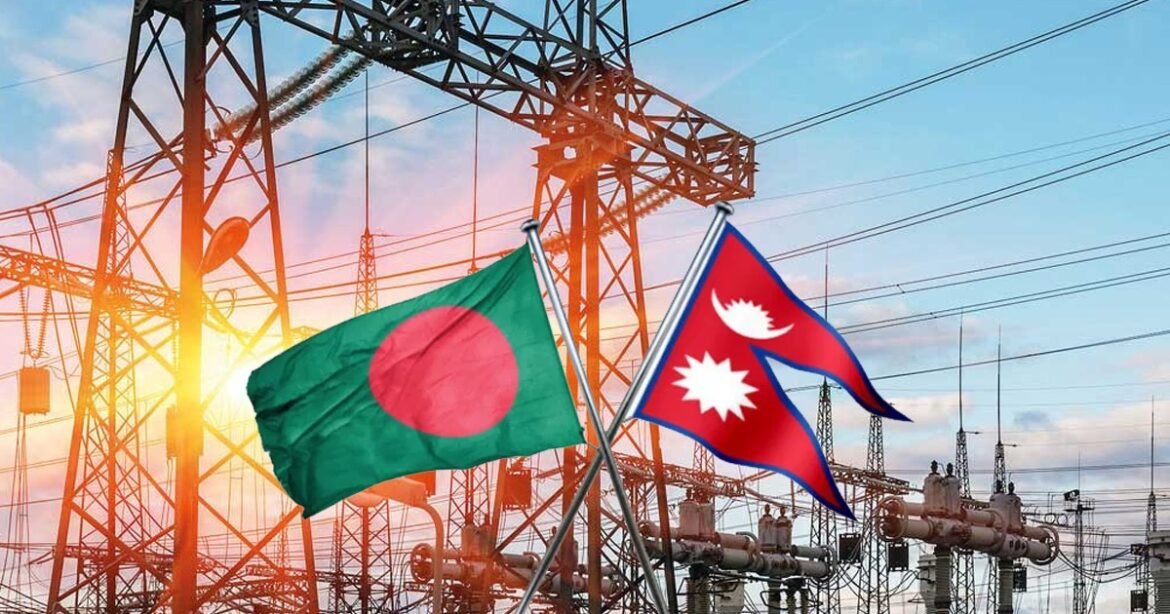As per the long-term agreement, Bangladesh and Nepal agreed to sign a 25-year power deal for the export of 40MW of electricity that will ensure a long-term market for Nepal’s electricity in Bangladesh. The duration of the agreement has been settled even though the two sides are yet to negotiate the tariff to be charged on the electricity.
The agreement was initiated during the visit of Nepal Prime Minister Pushpa Kamal Dahal to India from May 31 to June 3.
You can also read: Govt. initiates cost-cutting measures to tackle financial constraints
Expressing opinions
Initially, the Bangladeshi side had expressed a preference for a five-year agreement with an option for renewal, citing uncertainties in the power sector’s development stated by Prabal Adhikari, the power trade director at Nepal Electricity Authority. However, NEA Managing Director Kul Man Ghising stated that Bangladesh finally agreed to a 25-year deal, which is yet to be signed.
Negotiations regarding the tariff for electricity
Despite the ongoing negotiations concerning the tariff for electricity, the duration of the agreement has been finalized, pledging a long-term market for Nepal’s electricity in Bangladesh.
According to the authority officials, that Bangladesh first wanted to settle issues other than tariff. The technical and commercial parts of the agreement were discussed and the two sides reached an understanding.
On tariff, the NEA Managing Director Kul Man Ghising (NEA) seems to be open to negotiation.
“We plan to offer a good tariff as a good gesture, as it will be a government-to-government deal and a reference can be the existing electricity price in Bangladesh but we are yet to decide on the rate.” Ghising added.
Proposal deals over agreement
Bangladesh will be required to directly pay transmission charges and service fees to the Indian nodal agency for cross-border power trade and charges will be imposed in accordance with India’s open access rules, as per the draft of the proposed power purchase sale agreement.
When it comes to transmission charge and service fee, Bangladesh will directly pay to the NTPC Vidyut Vyapar Nigam Limited (NVVN) and the transmission charge will be equivalent to what India’s power traders are currently charging power buyers, according to Adhikari, the power trade director at the authority. He also expressed that in line with the transmission charge being levied in India, Bangladesh might have to pay 40-55 paisa [in Indian currency] per unit depending on the technical conditions of the transmission infrastructure including the load.
“Bangladeshi entities may also have to pay service fees for the Indian company’s effort in obtaining Indian regulatory approval. “The service charge may range from 4 to 7 paisa [Indian currency] per unit,” said Adhikari.
The NVVN, India’s nodal agency for cross-border power trade, will be responsible for collecting these fees, he said.
Once Nepal and Bangladesh reach an understanding on tariff, it will pave the way for a tripartite agreement.
Bangladesh and Nepal have decided to request India to permit power trade through the high-voltage Baharampur-Bheramara cross-border transmission line.
Expected proposal
The proposed deal will be formalised after a tripartite agreement between Nepal, India, and Bangladesh on the transmission of electricity from Nepal to Bangladesh using Indian territory.
India has also articulated its readiness to ease electricity trade between its two neighbours. In a meeting held in Bangladesh in May of last year at the energy secretary level, Bangladesh and Nepal reached an agreement to sign a tripartite deal involving the Bangladesh Power Development Board (BPDB), NEA, and NTPC Vidyut Vyapar Nigam Ltd (NVVN) of India.


